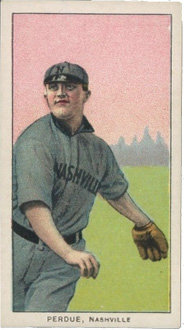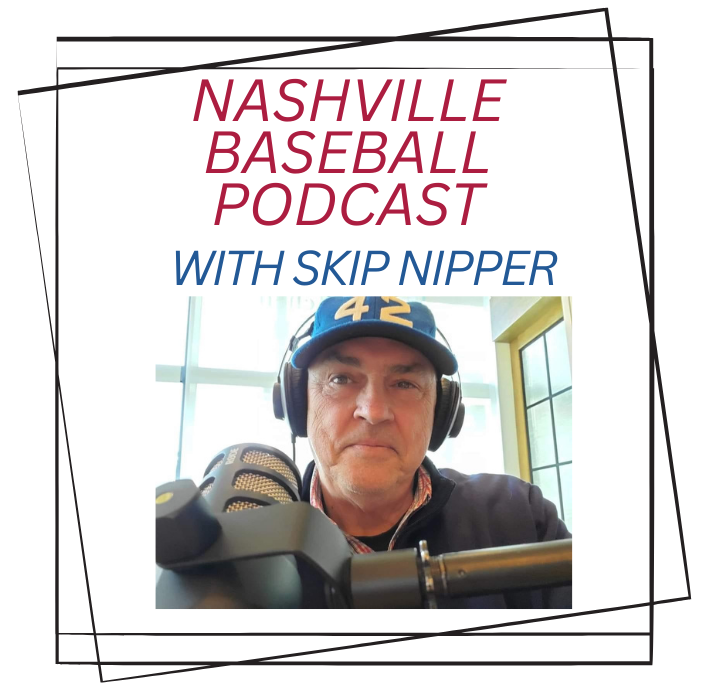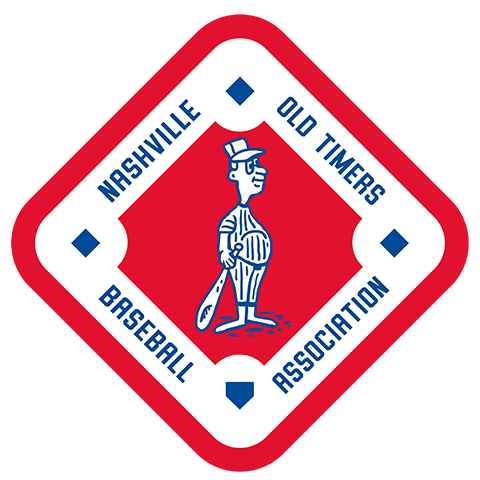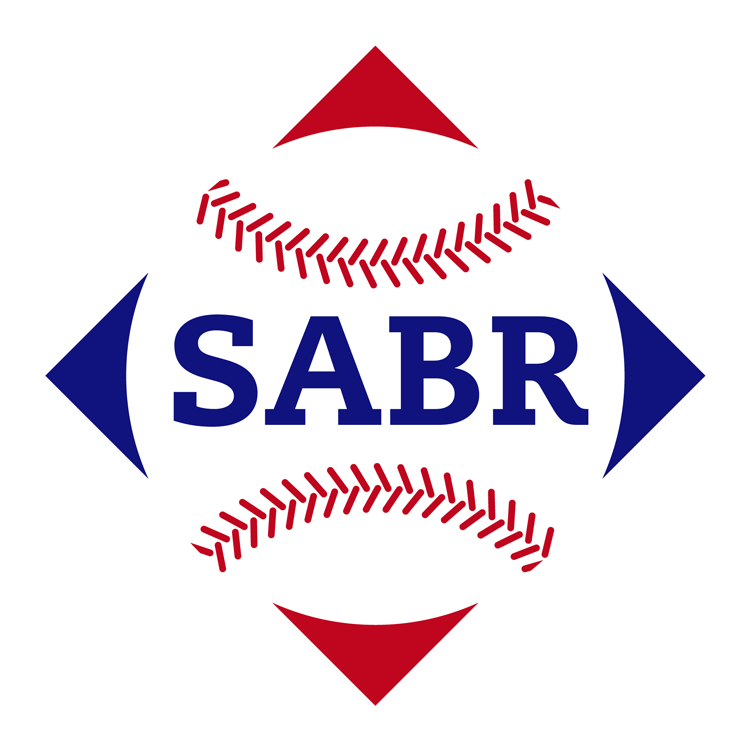
October rings in the close of each baseball season, as the National League and American League champions move on to the best-of-seven World Series. Once a winner is determined, players tuck away their cleats, gloves, and bats for winter, unless opportunity allows them to continue in barn-storming exhibitions to pick up some winter cash. Otherwise, stadiums lockdown until the wisp of spring sets in once again.
Minor league teams finish their seasons much sooner than the big-league clubs, and it was no different in 1913 when the Atlanta Crackers won the regular-season Southern Association championship by ½ game over the Mobile Sea Gulls. Bill Schwartz’s Nashville Vols were 19 ½ games behind in the standings with a 62-76 record, good enough for seventh place.
Having completed its season, Atlanta secured the pennant on September 7, as Mobile lost to last-place New Orleans, thereby giving the Georgia club the flag. Most eyes soon focused on the major’s culmination series, taken by Connie Mack’s Philadelphia Athletics as they vanquished Mugsy McGraw’s New York Giants in five games. One would believe that was all the baseball to be played for the year, as football was gaining traction. Games were already being played at Sulphur Dell by high school teams and Fisk University.
Even with no minor league playoffs in those days, Nashville was still in the baseball business. Its regular season finished, Sulphur Dell hosted a game on the same day as the Crackers pennant clinch. It featured an all-star team from the not-to-distant Kitty (Kentucky-Illinois-Tennessee) League, mostly players on the Clarksville and Hopkinsville teams. Only a few hundred fans viewed the contest won by Nashville, 4-1.[1]
Connie Mack’s Athletics had captured the World Series crown on October 11, and Philadelphia’s season was over; but there was time for one final game for Nashville. Sportswriter Jack Nye made the announcement in the October 13 edition of the local newspaper.
“With the closing of the world’s series, the obituary of the baseball season is usually written throughout the country, but Nashville fans will have one more opportunity to witness an exhibition game before the old winter league sets in.
“Arrangements have been made for a game at the Athletic park next Sunday afternoon between an all-amateur and an all-professional team, chosen from the baseball talent of this city…”.[2]
Named to pitch for the pros were Roy Walker, a pitcher from the New Orleans club, Detroit’s Charlie Harding, who was 12-6 for the Tigers’ Winston-Salem club, and Nashville native Bill McTigue. Native Nashville pro Bob Fisher, who had spent the past season as the Brooklyn Superbas shortstop, would play third base and join Nashville’s John Lindsay (shortstop) and Bill Schwartz (second base) in the infield, while Johnson City’s Tige Garrett would hold down first base.
Earl Peck, a catcher for the Henderson Hens, was to man chores behind the plate. The remainder of the pro roster would include outfielders Johnny Priest, who had been a member of the Yankees a few years prior, Knoxville’s James Burke and another Nashville-born slugger, Tiny Graham. Graham had batter .370 during the season for Morristown in the Appalachian League.
Hub Perdue, from nearby Sumner County and nicknamed the “Gallatin Squash” by sportswriter Grantland Rice during his local tenure a few years prior, was to be the featured star for the amateurs even though Perdue had been a professional since 1906. Perdue had played for Nashville 1907-1910 (he was 16-10 on the Vols’ 1908 championship club) and had been a member of the National League’s Boston Braves for the past three years. Rumors were rampant that he was signed by the Giants’ McGraw to play on a barn-storming tour around the world during the winter.[3]
The balance of the amateur staff would be made up by Payne, catcher; Tally, first base; Lynch, second base; Sawyers, shortstop; Harley, third base; O. Schmidt, left field; Sutherland, center field; Conley, right field; and Gower, substitute.
Two days before the game was to take place on Sunday, October 19, the Friday edition of the Nashville Tennessean and Daily American announced lineup changes. Two professionals with ties to Nashville, Wilson Collins, pitcher for the Boston Braves, and Clarence “Pop Boy” Smith, of the Chicago White Sox, were set to join players previously set to play.
“Collins will play center field for the professionals, while Smith has agreed to assist Hub Perdue in pitching for the amateurs. It will be Collins’ first professional appearance in Nashville, and his presence in the lineup is sure to prove a big drawing card, especially among the Vanderbilt students. Smith married a Nashville girl some months ago and is at present visiting in the city. He declared that he would be glad to take part in the contest, and says his arm is as strong as during the middle of the American League season.”[4]
Also added to the pro roster as a substitute was Munsey Pigue, who had previously played third base for Clarksville and Cairo, and who had made Nashville his residence.
Perdue touted his ability to perform and his willingness to pitch to the best of his ability. He was quoted, “Tell ’em I’ll show ’em some pitching tomorrow afternoon,” said Hurling Hub Perdue last night. “I am going to pitch my old arm off to win that game.” [5]
Perdue was a promoter, that’s for sure, but whether due to a small turnout of only 200 fans or in truth suffering from a sore arm, he did not pitch in the game. And the pros took it on the chin, too.
“Hub Perdue was there but did not pitch on account of a sore arm. However, the son of Sumner took his place on the coaching lines, and was one of the big attractions of the afternoon’s entertainment.” [6]
Held hitless by pitcher “Crip” Springfield through eight innings, the pros could not collect a run until the bottom of the ninth when they had two hits to force across the tying run, sending the game into the tenth inning. Springfield, who had a lame leg, won the game when the amateurs scored a run in the bottom of the tenth, and the pros could not respond.
It was Springfield’s triple in the eighth that drove in the amateurs’ first run, but it was his brilliant mastery of the pros that had the sportswriters buzzing.
“Crip Springfield, of the Rock City league, is the name of the hero of the post-season game, which drew the bugs out in spite of the chilly weather, and he came near having a no-run, no-hit game to his credit.” [7]
Perdue would play two more seasons in the majors, with Boston (1914) and the St. Louis Cardinals (1914-1915). He would not return to the majors, but he remained in the minors for another seven seasons. Fighting through lingering arm troubles and wrenching his back slipping on a wet mound, even a spiking incident could not keep him from finishing his minor league career with 168 wins against 129 losses. He also returned to Nashville for a short time in 1920.[8]
In 1921 he was given another chance to manage a team, eight years after his first foray of leading a squad of amateurs. Named manager of the Nashville Vols, the season did not go well, as Perdue’s club finished in sixth place, a distant 41 ½ games behind pennant-winning Memphis. It was his second opportunity to manage, and his last.
Did his previous bid to lead a club in 1913 foretell his managing misfortune?
Sources
Baseball-reference.com
Newspapers.com
Sabr.org
Wright, Marshall D. (2002). The Southern Association in Baseball, 1885-1961. Jefferson, North Carolina: McFarland & Co.
[1] Jack Nye, “Kitty League All-Stars Beaten,” Nashville Tennessean and Daily American, September 8, 1913, 10.
[2] Nye, “One More Baseball Game Here Before Old Winter League Begins,” Nashville Tennessean and Daily American, October 13, 1913, 10.
[3] Ibid.
[4] “Two More Major League Stars To Play,” Nashville Tennessean and Daily American, October 17, 1913, 10.
[5] “Will Pitch My Arm Off, Says Perdue,” Nashville Tennessean and Daily American, October 19, 1913, 34.
[6] “Professionals Held To Two Hits,” Nashville Tennessean and Daily American, October 20, 1913, 10.
[7] Ibid.
[8] John Simpson, “Hub Perdue,” SABR Bio-Project, https://sabr.org/bioproj/person/584e9b10, accessed January 30, 2020.
© 2020 by Skip Nipper. All Rights Reserved.



